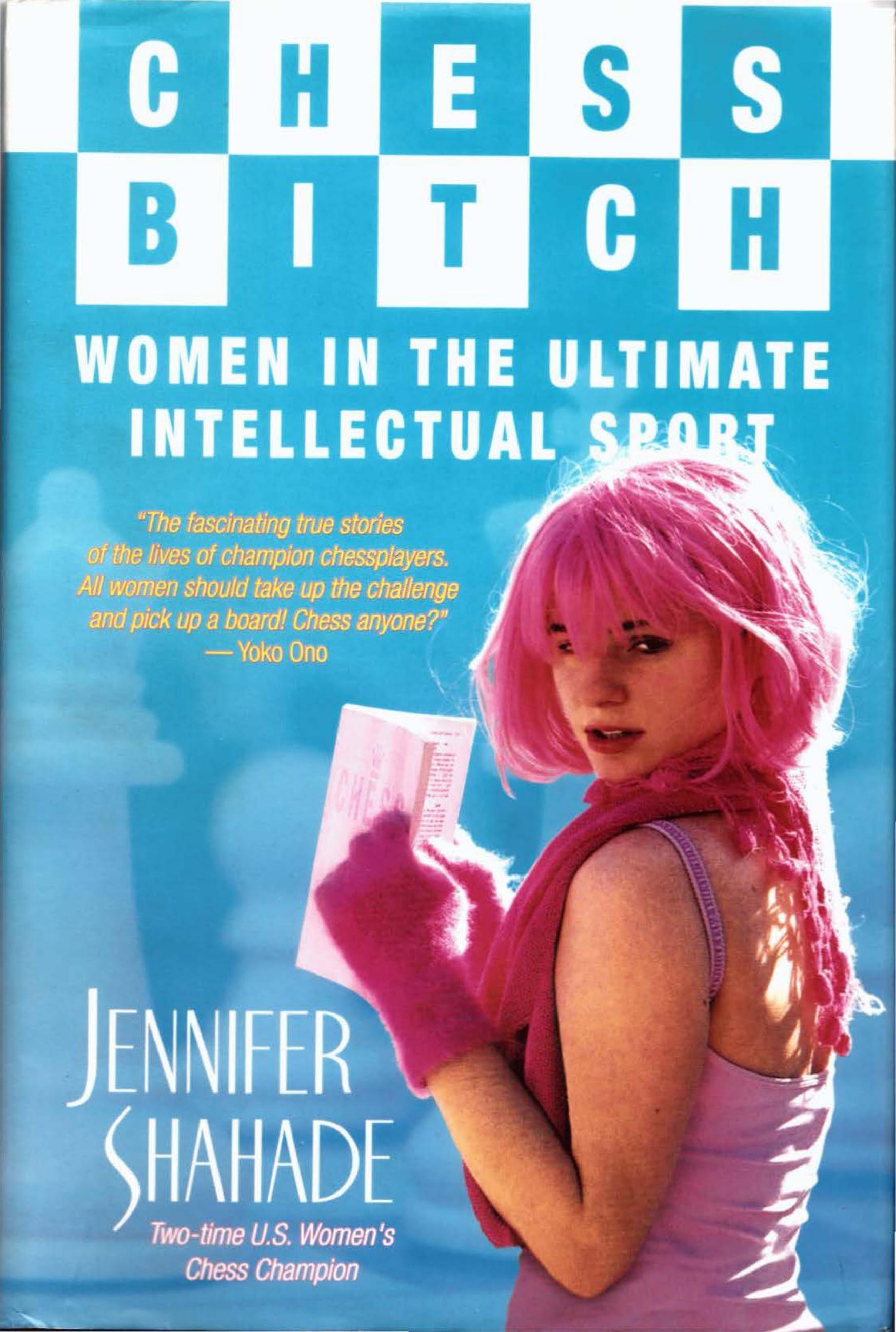Chess Bitch: Women in the Ultimate Intellectual Sport by Jennifer Shahade

Author:Jennifer Shahade [Shahade, Jennifer]
Language: eng
Format: epub, pdf
ISBN: 9781890085094
Publisher: Siles Press
Published: 2005-09-28T07:00:00+00:00
In the view of my coach, Victor Frias, putting in fewer hours is the main reason the best female players are not at the level of the best males. He praised Judit Polgar as the first woman to break into the world’s top-ten list, because she was “the only woman in chess who eats, sleeps, and breathes chess, just like her male counterparts.” Some feminists and writers agree that women do spend less time on chess, but think that the problem is not with women, but with the hyper-competitive structure of the chess culture. Alexander Cochburn wrote in Idle Passion, “It can be taken as a creditable sign that women have largely not become involved in chess or as expert as men in its execution, because they are happily without the psychological formations or drives that promote an expertise in the game in the first place.”
Anti-chess feminism, a way of thinking that I encountered time after time in my interviews and research, accepts Victor’s premise that women spend less time on chess, but don’t think this is a bad thing. As Margaret Mead said, “Women could be just as good at chess, but why would they want to be?” Nine-time American women’s champion Gisela Gresser considered men obsessed with chess bizzare. She said, “You know women are too reasonable to spend all their time on chess.”
Such rhetoric is not limited to the chess world. In the October 26, 2003, edition of The New York Times Magazine, the cover featured a woman sitting with her baby next to a ladder. The article by Lisa Belkin was titled “The Opt-Out Revolution.” The so-called revolution was about women leaving the work force to pursue more old-fashioned feminine roles. Sally Sears, a lawyer-turned-homemaker, said that women were leaving “the rat race” because “we’re smarter.”
That women might be too intelligent to waste their time on chess or work strikes me as a superficial idea. We reward excellence in most areas with money and respect, so to inquire casually if women are too smart to be obsessive requires a harsh assessment of our cultural values.
Surprisingly, some radical feminists would agree with conservatives that women and chess don’t mix well. Sexists might say that women aren’t playing chess because women are stupid, while “anti-chess feminists” might say that women aren’t playing chess because chess is stupid. Le Tigre, a radically feminist pop-rock band, wrote a song called “Mediocrity Rules,” with a CD cover that reads: “Behind the hysteria of male expertise lies the magic of our unmade art.” In this view, the existence of superstar figures such as grandmasters or rock stars are based on a patriarchal pyramid structure of power. The accomplishments and ideas of a few are celebrated, while the majority is overlooked. To replace “the hysteria of male expertise” it would not be sufficient to simply add a few women to the top of the pyramid, but to tear down the whole structure in favor of something more egalitarian and inclusive.
Chessplayers are definitely categorized with a pyramid structure, determined by their chess ratings.
Download
Chess Bitch: Women in the Ultimate Intellectual Sport by Jennifer Shahade.pdf
This site does not store any files on its server. We only index and link to content provided by other sites. Please contact the content providers to delete copyright contents if any and email us, we'll remove relevant links or contents immediately.
The Infinite Retina by Robert Scoble Irena Cronin(6235)
Harry Potter and the Cursed Child: The Journey by Harry Potter Theatrical Productions(4488)
The Sports Rules Book by Human Kinetics(4376)
Molly's Game: From Hollywood's Elite to Wall Street's Billionaire Boys Club, My High-Stakes Adventure in the World of Underground Poker by Molly Bloom(3527)
A Knight of the Seven Kingdoms by George R R Martin(3313)
How To by Randall Munroe(3099)
Quidditch Through the Ages by J.K. Rowling(3098)
Flowers For Algernon by Daniel Keyes(3095)
Quidditch Through the Ages by J K Rowling & Kennilworthy Whisp(2960)
Stacked Decks by The Rotenberg Collection(2874)
Quidditch Through the Ages by Kennilworthy Whisp by J.K. Rowling(2843)
Quidditch through the Ages by J. K. Rowling(2790)
776 Stupidest Things Ever Said by Ross Petras(2770)
Quidditch Through The Ages by J. K. Rowling(2758)
Ready Player One: A Novel by Ernest Cline(2704)
What If?: Serious Scientific Answers to Absurd Hypothetical Questions by Randall Munroe(2692)
Beautiful Oblivion by Jamie McGuire(2597)
The Book of Questions: Revised and Updated by Gregory Stock Ph.d(2556)
Champions of Illusion by Susana Martinez-Conde & Stephen Macknik(2441)
